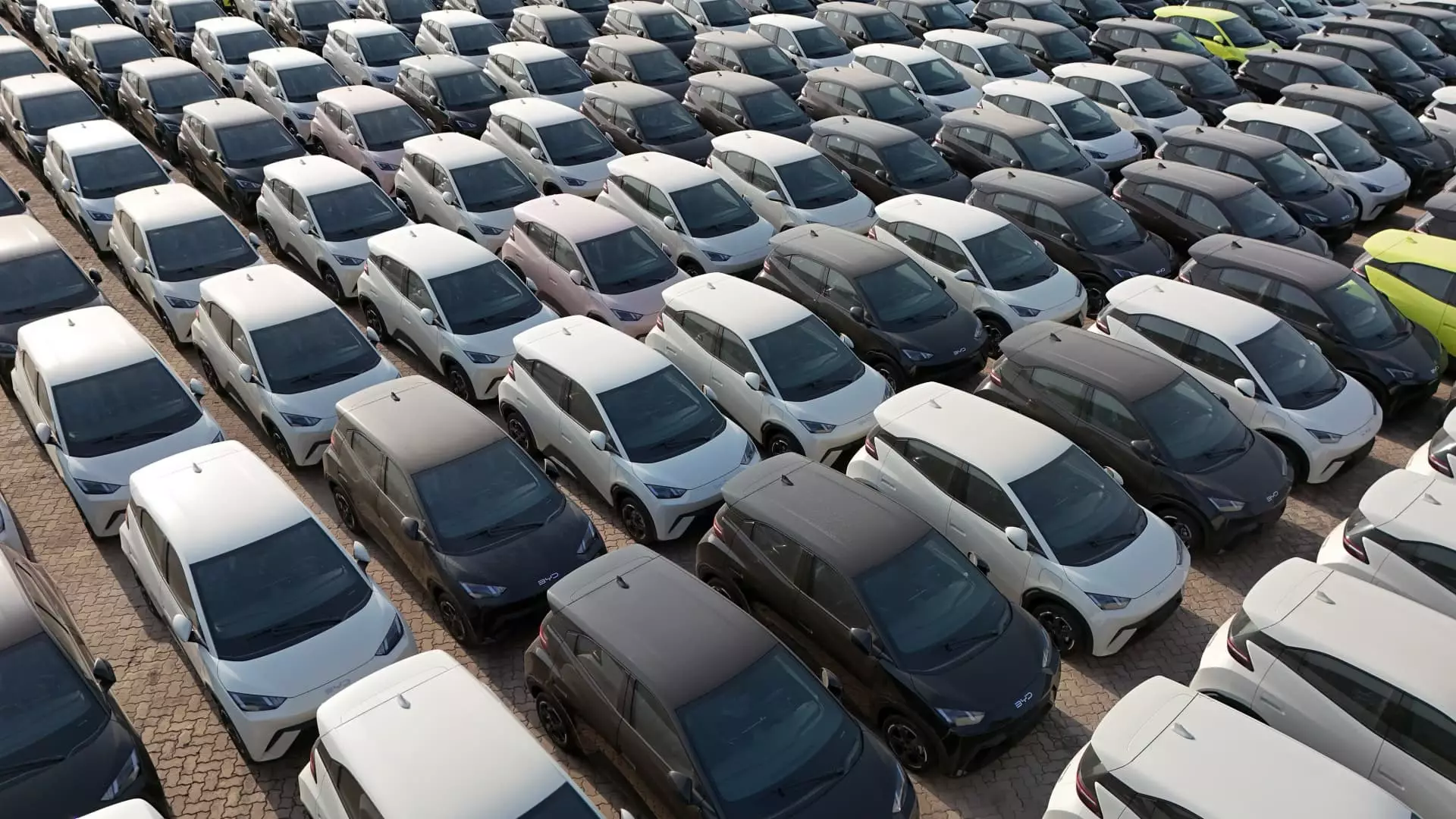The landscape of global trade is fraught with complexities, particularly concerning emerging industries like electric vehicles (EVs). In a recent round of escalating tensions, the Chinese government publicly condemned the European Union for its decision to lower tariffs on specific EV imports while imposing duties on major Chinese manufacturers, including industry giant Tesla. This article delves into the underlying issues, reactions, and implications of this contentious situation.
The European Commission, acting as the EU’s executive arm, made headlines by reducing tariffs on several electric vehicle manufacturers, a decision interpreted as a strategic move against perceived unfair competition from China. While tariffs on Tesla were lowered from a projected 20.8% to 9%, the existing 10% duty on battery electric vehicles remains a significant obstacle for Chinese manufacturers like BYD, SAIC, and Geely. This regulatory framework aims to protect the European automotive sector, which is concerned about Chinese subsidies giving its domestic competitors an unfair advantage.
The EU’s concerns stem from China’s substantial financial backing of its electric vehicle industry, prompting fears of market distortion. By lowering tariffs for some automakers while simultaneously imposing tariffs on others, the EU is attempting to navigate a complex web of trade relations, one that could have far-reaching consequences for all players involved.
In a decisive move, China’s Ministry of Commerce expressed its discontent with the EU’s actions, describing them as a promotion of unfair competition. The spokesperson for the ministry pointed out what they perceive as pre-set conclusions in the EU’s investigation into China’s EV subsidies, stating that the findings lack a fair assessment of the situation. They further accused the EU of failing to fully consider the extensive documentation and evidence that China provided, which aimed to illustrate the legitimacy of its practices.
China’s response signifies a broader trend of nations defending their industries against external pressures. By signaling readiness to “take all necessary measures” to protect its companies, China is indicating its willingness to escalate the situation should it deem that its companies’ rights and interests are severely threatened.
The EU’s actions and China’s countermeasures may create a ripple effect across the global automotive supply chain. The tariffs and counter-tariffs can disrupt the stability that has characterized the global market, as manufacturers navigate the changing landscape of trade regulations. The enforcement of tariffs not only impacts the pricing of vehicles but also affects the availability of parts, production strategies, and market strategies for automakers.
Moreover, these tensions spotlight the precarious balance of competition and cooperation in international trade. The electric vehicle market, it’s worth noting, is still in a nascent phase and is characterized by rapid innovation and growth. Tariff disputes could impede the technological advancements and collaborations that are necessary for the industry to thrive.
Hopes for Resolution
Despite the heated exchange, there are signals that both sides hope to de-escalate tensions and find a constructive path forward. China’s Ministry of Commerce has conveyed a desire to engage in dialogue aimed at resolving disputes amicably, showcasing a willingness to prevent further trade frictions. This approach hints at a mutual understanding that excessive tariffs and retaliatory measures would likely harm both economies and ultimately hinder the progress toward sustainable transportation.
While the immediate future remains clouded with uncertainty, the outcome of this trade clash could redefine the competitive dynamics in the global electric vehicle market. Stakeholders in both China and the EU will need to reassess strategies moving forward to navigate these turbulent waters effectively.
The friction between China and the EU over electric vehicle tariffs presents a complex challenge underscored by economic nationalism and global interdependence. As both regions wrestle with the implications of their respective policies, the potential for either cooperation or conflict looms large. The stakes are high, and with electric vehicles poised to play a critical role in the future of transportation, finding a balanced and fair resolution will be essential not only for economic interests but also for sustaining the momentum toward a greener planet.

